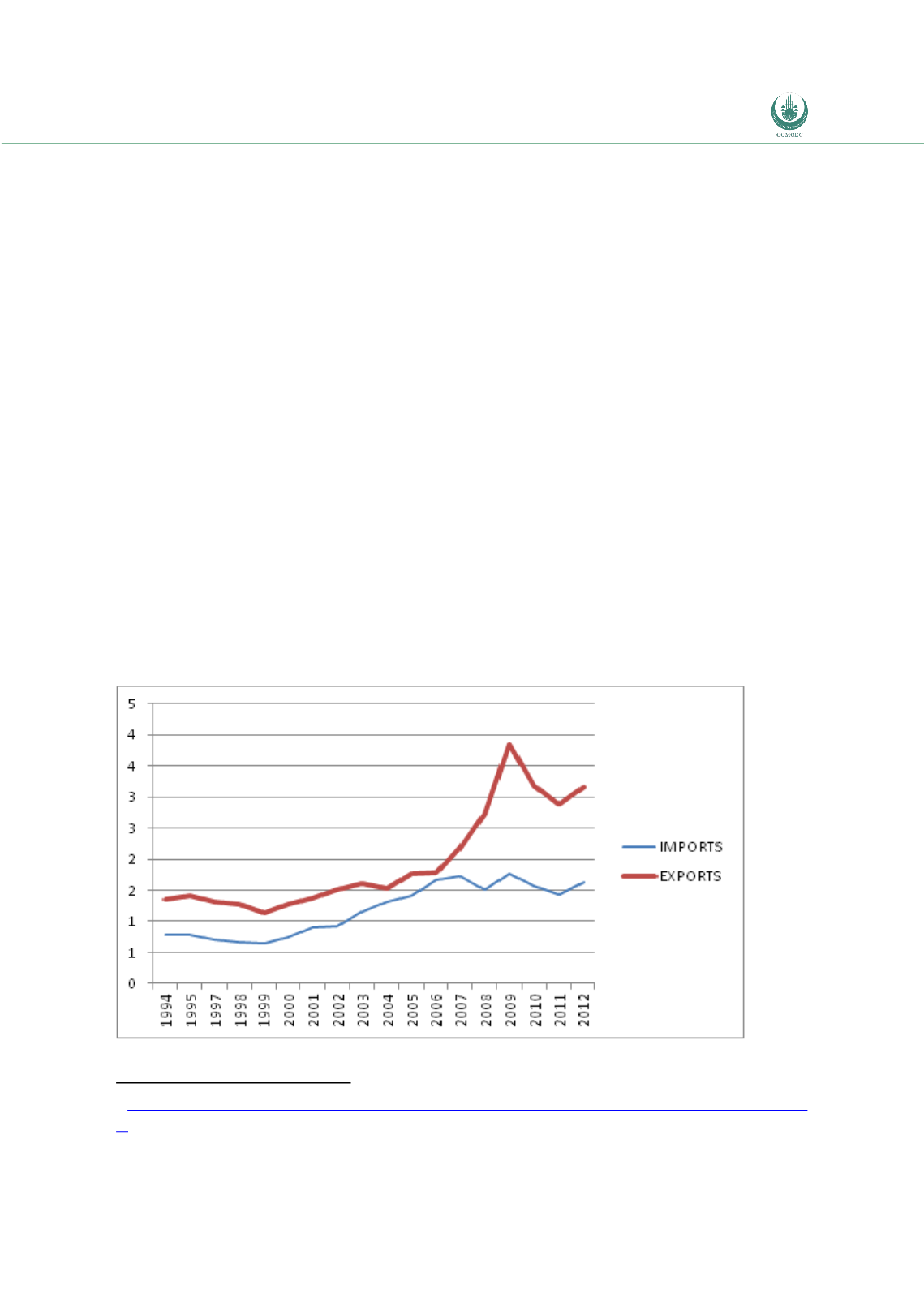

Preferential Trade Agreements and Trade Liberalization Efforts in the OIC Member States
With Special Emphasis on the TPS-OIC
115
In the Pan-Euro-Med zone, in principle, in diagonal trade a prohibition of duty drawback must
be respected, i.e. it will not be possible to repay duties paid on inputs imported from non-
participating countries. This is meant to reduce the incentives for the use of imported inputs
from non-participating countries and to encourage the use of inputs from parties of Regional
Convention on pan-Euro-Mediterranean preferential rules of origin. However, at present all
four Agadir members are allowed to apply partial drawback as a temporary provision
(currently running until end-2015).
27
The Agreement also provides for enhanced cooperation
on customs procedures and technical standards. The services provisions re-iterate GATS
commitments.
Intra-Agadir trade increased significantly from the early 2000s in relative terms. The share of
intra-Agadir exports and imports in total exports and imports doubled from early 2000s to
2009-2012 (Figure 32). This increase largely coincides with the period of entry into force of
the agreement. The analysis of individual members’ shares of trade with Agadir partners
reveals that the main driving force of the rise of intra-Agadir trade was a boost of Egypt
exports, especially to Jordan. This can be partly explained by rising natural gas exports
following the opening of the natural gas pipeline in mid-2000s and to a lesser extent rising
electricity ex ports. However, the levels and dynamics of intra-Agadir non-oil and gas exports
and imports are actually very similar to the ones for total trade confirming increasing trade
integration in the region (or at least between Egypt and Jordan).
Figure 32: % Share of Intra-bloc Trade out of Total Agadir Trade)
Calculations based on Comtrade data
27 http://ec.europa.eu/taxation_customs/customs/customs_duties/rules_origin/preferential/article_783_en.ht m[accessed 2 May 2014].

















